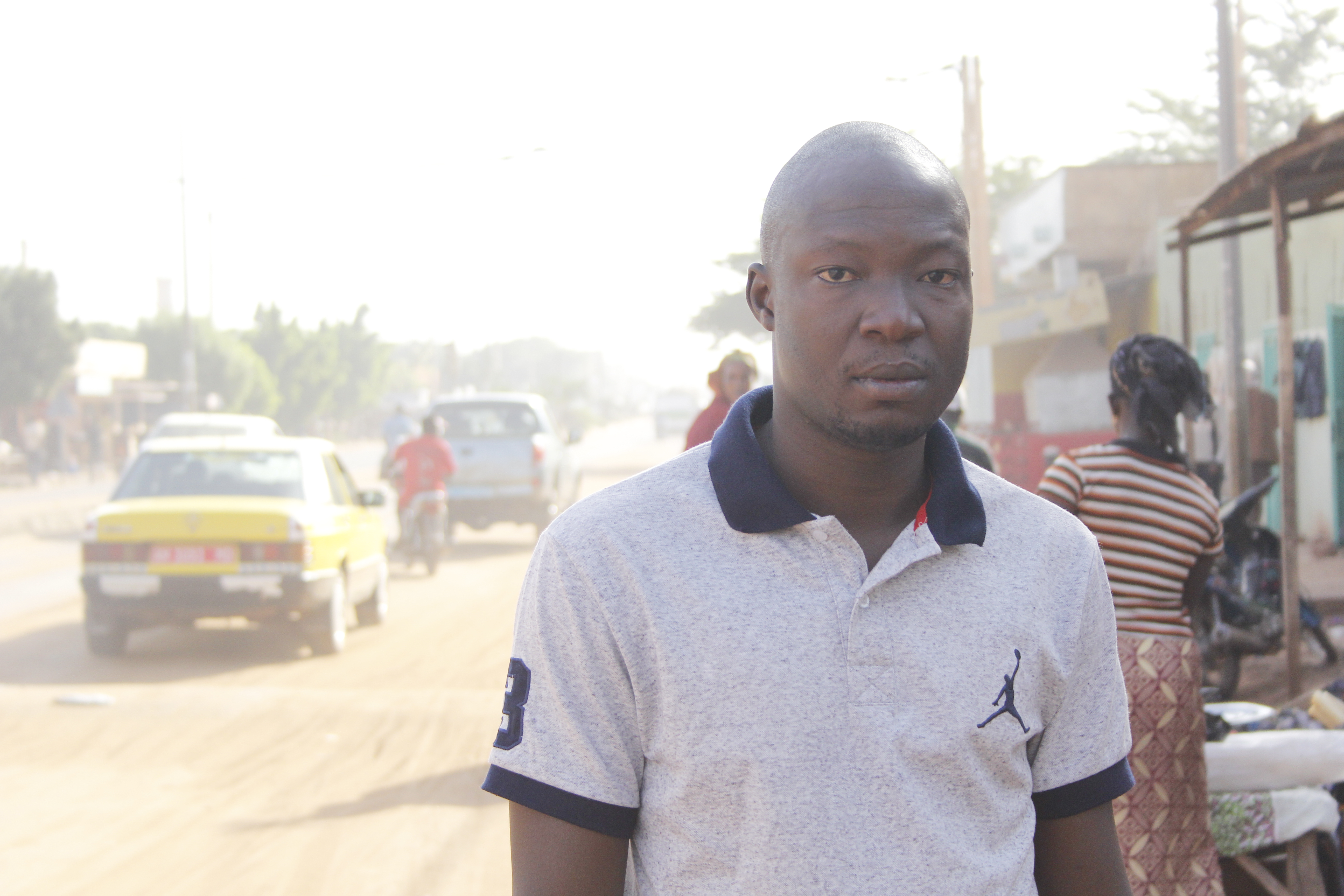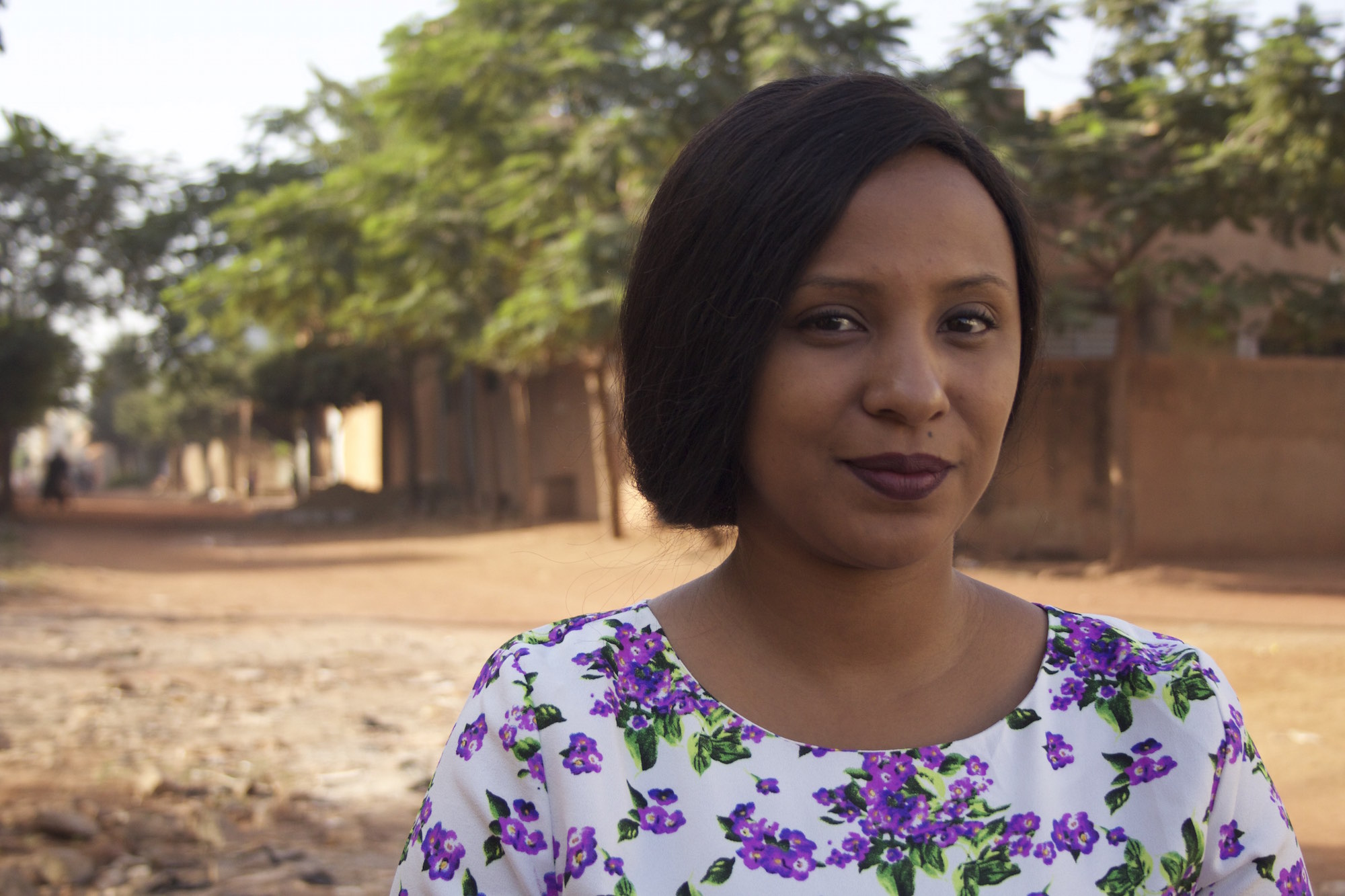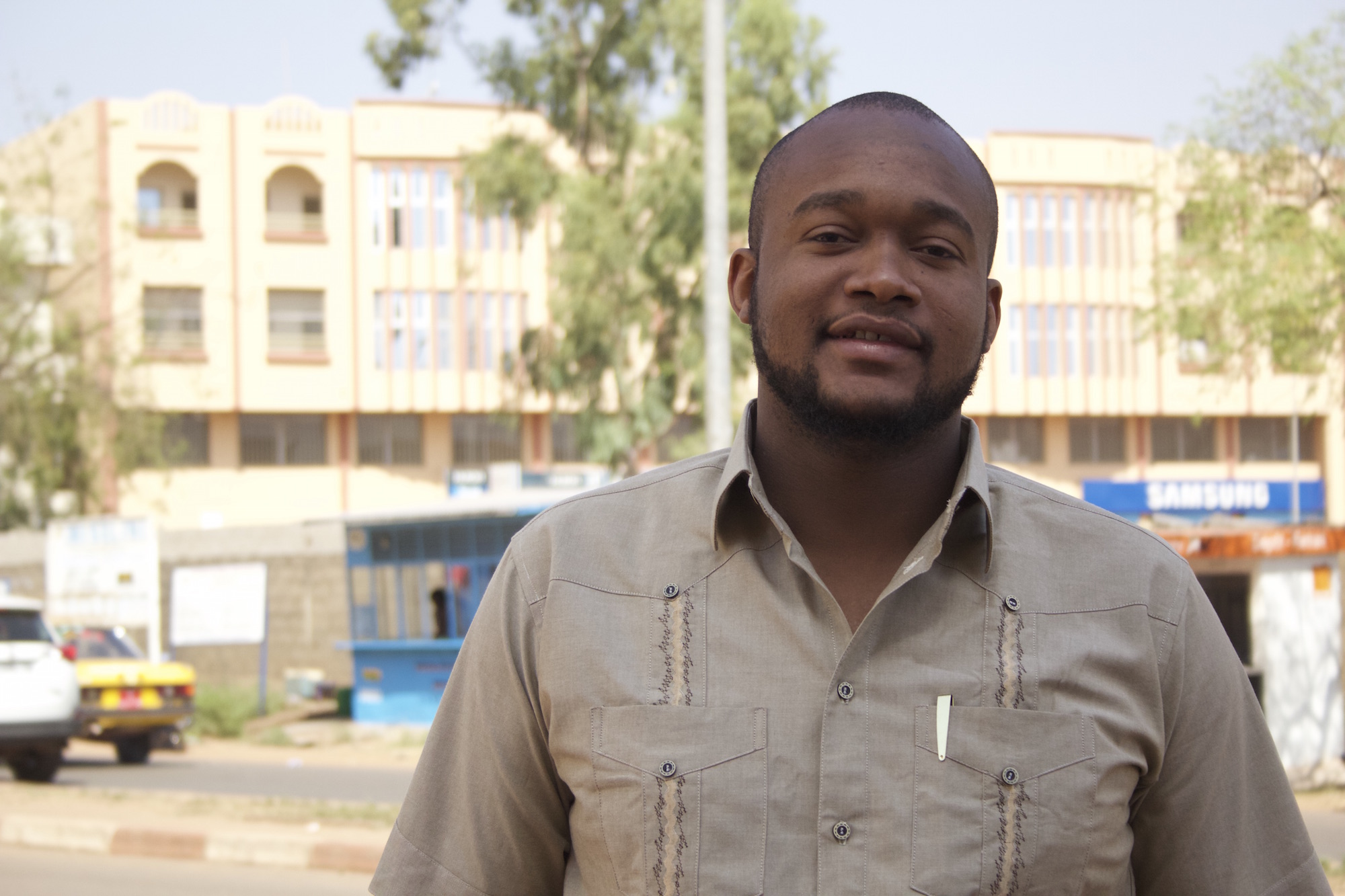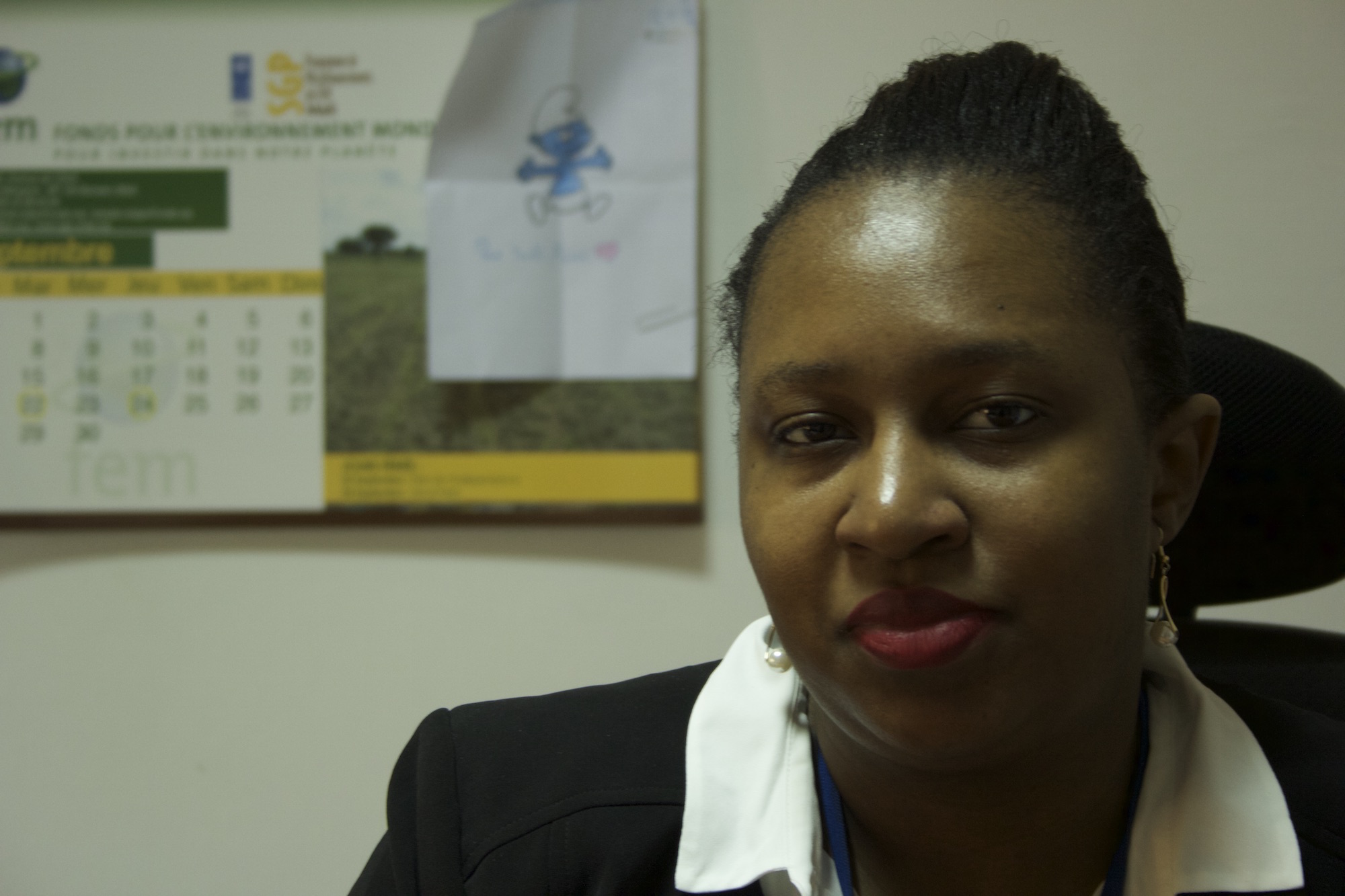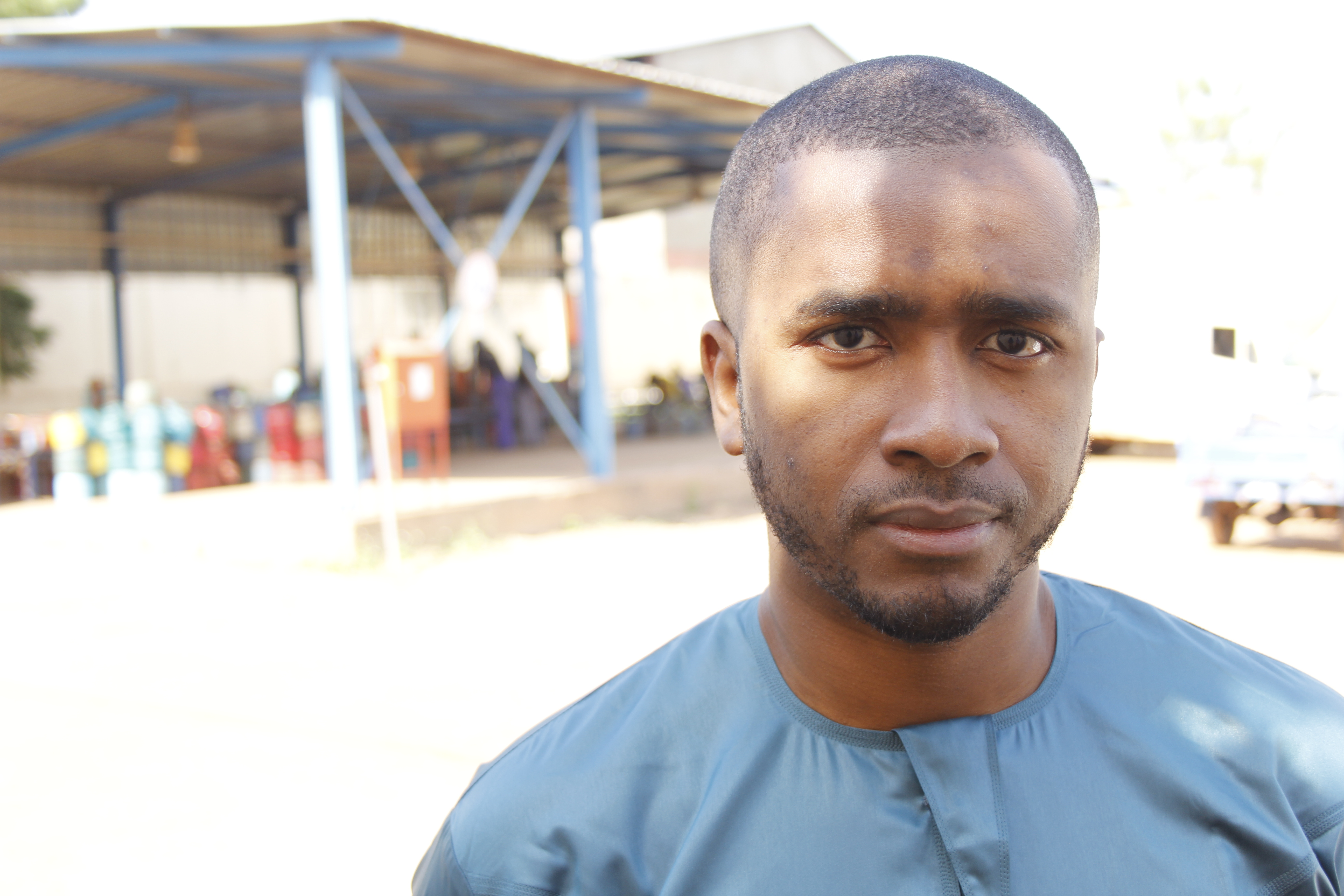In the early morning of November 20, 2015, Islamist militants took 170 hostages at the Radisson Blu hotel in Bamako. The siege lasted over ten hours and 22 were killed in a mass shooting. The president of Mali, Ibrahim Boubacar Keita, came back from a visit to Chad and declared a 10-day state of emergency.
It was the second attack in the Malian capital that year. Five people were killed in a restaurant popular with foreign nationals back in March. Al-Qaeda in the Islamic Maghreb (AQIM) and its affiliate al-Murabitoun have claimed responsibility. Questions still remain as to who exactly was behind the attack and how they managed to acquire a black 4×4 car with diplomatic number plates.
A total of 170 people were taken hostage at Radisson Blu hotel in #Mali's #Bamako earlier https://t.co/u2hcVPzzYJ pic.twitter.com/VVX5thcA1H
— BBC News (World) (@BBCWorld) November 20, 2015
We talked to five people who live in Bamako about what happened that day and what they think the future holds.
28-year-old Eugene Mounkoro is a temp in a marketing agency on Bamako. He lives in Kalaban Koura (and area of the right bank of Bamako in district five) and studied law.
How did you find out about the attack?
It was early in the morning and I was getting ready to go to work at about 8 am when my colleague called me to tell me that the Radisson had been attacked by Jihadists. An hour later, when I was work, my boss texted me to tell me the same thing.
Do you feel safe in Bamako?
At the moment, I have to say no. After the attacks on the restaurant La Terrasse last March by these Jihadists, the state should have taken more drastic security measures. But 8 months later the Radisson is attacked. So steps need to be taken at the national level for Malian citizens of every ethnicity and wherever they are from.
What do you think should be done to improve security in Bamako and Mali?
In my opinion, the military forces and the population need to collaborate and work together. We should be vigilant and alert the relevant authorities when we see something suspect. We should also have plain clothes policemen to reduce the risks of terrorism.
What do you think will be the political consequences?
With these different terrorist attacks, and watching the news, one realises that Mali is in the danger zone. That frightens investors and diplomats who want to come to Mail. I would then say that the consequences will be bad for Mali.
As a Catholic, have these attacks changed your attitude towards Islam?
No, not at all. Here in Mali, before religion there were close relationships between ethnicities. These links are far older than religions the attacks have not changed my attitude towards Islam and my Muslim brothers.
Houdaima Toure is 23-years-old and is originally from the Djenné region of Mopti. She has a degree in business management but is also a painter. She lives in the Baco Djicoroni GOLF neighbourhood.
How did you find out about the attack?
I found out about it while watching the television. I was watching France 24. I was at home and spent the whole day watching the news. I wasn’t frightened but I knew it was the best place to stay informed about what was happening.
Do you feel safe in Bamako?
At the moment, I have to say no and yes because I don’t want to give in to fear but also I realise that something could happen anywhere. I say that because I am a regular at the Radisson and eat there almost every lunch time. I could have been there that day and it could have happened a little later when I was there rather than early in the morning. So that is quite frightening.
What do you think should be done to improve security in Bamako and Mali?
Mali needs far more competent security forces, who are more active and in greater numbers. And we need people who are adequately trained to ensure our safety because the world has changed. We live in a world where crime is evolving; crime is different; and terrorism is the buzzword. We, therefore, need people who can deal with that kind of situation.
What do you think will be the political consequences?
I think these events will have a huge effect on collaboration with other countries because people will certainly be scared.
Do you think social media exacerbated the reactions?
I am really active on social media and I don’t think it did. On social media everyone just gives their opinions and it’s not an exaggeration, it’s just an opinion. Personally I prefer a false alert to a real problem; social media it’s just a signal.
Your mother is Catholic but you are a Muslim, have these attacks changed your attitude towards Islam?
No, not at all. Before I didn’t pray regularly but now I do because I realise that that isn’t Islam. They are crimes, attacks on innocent people which have nothing to do with the real Islam. The real Islam is peace, tolerance, loving your neighbour; that for me is Islam.
Mamadou Tounkara is 27 and has a master’s in business administration. He is the commercial director of an estate agency. He is single and has a two-year-old child. He lives about 400 metres from the Radisson on the left bank. He’s originally from Kayes.
How did you find out about the attack?
Like every morning, I woke up at six o’clock and suddenly hear gunshots. I live about 400 metres away from the hotel. I went out of my house and saw that there were people in the streets who explained that a terrorist attack was happening in the hotel. I went back home and watched the news on the television for the whole day. I didn’t go to work as my office is just feet away from the Radisson.
Do you feel safe in Bamako?
No, not at all. Straight after the attack on the restaurant La Terrasse eight months ago the government were on high alert and bulked up security. But they have now loosened security and so these people have taken advantage of it. Alongside the day-to-day lawlessness we encounter all the time, this frightens us.
What do you think should be done to improve security in Bamako and Mali?
I think the police must do its job correctly; even if it means setting up a daytime patrol system to assure the security of its citizens. At checkpoints, there’s also corruption. Sometimes vehicles and drivers without identification pass through these checks freely. These systems have to be more rigorous.
What do you think will be the political consequences?
It will have consequences because we’ve just overcome a difficult situation. Financial backers had left and now things are starting to get better, we’ve had this attack. It’s going to have a political impact on Mali. As I work in the private sector I work with many foreigners. Without security, they will not take the risk of coming to Mali.
Do you think social media exacerbated the reactions?
I live next to the hotel, so I saw what was happening from close quarters and I must say that on social media, people were saying more than they actually knew.
https://twitter.com/CJSilk/status/667652229822812160
You are Muslim, have these attacks changed your attitude towards Islam?
Never! Never! First of all I completely condemn these attack in the name of Islam. These attacks have nothing to do with Islam. I think a good Muslim must react like as is proper and those things are not allowed by Islam. These people are individuals with bad intentions and whom we must stop so we can live in freedom and each one can enjoy life like they want.
Rabiatou Maiga is 27 years old and comes from Gao although she lives in Daoudabougou. She has a master’s in commercial engineering and project management. She is married with a two-year-old child.
How did you find out about the attack?
I hadn’t yet gone to work and I learnt about it on Facebook. I have a friend who lives next door to the Radisson Hotel and had posted that there had been gunshots near the hotel. Other friends posted the same and finally the French Embassy confirmed that there had indeed been an attack at the Radisson Hotel. I took the day off and stayed home.
Do you feel safe in Bamako?
To be honest, I would say that I feel safe during the day but not at all at night because checkpoints are very badly organised and the police don’t understand to what extent people can have bad motives. There aren’t enough checkpoints and sometimes indistinguishable from bandits. The forces of law and order are badly organised.
What do you think should be done to improve security in Bamako and Mali?
I think we have to be organised. The forces of law and order need to understand that they have a duty and cannot be bribed here and there and by whoever. People who don’t have papers who are allowed to pass checkpoints, who are in cars with tinted windows and who aren’t stopped isn’t normal. They really need to take these threats more seriously and work with the population so that people trust them and don’t feel fear when they come in contact with them.
What do you think will be the political consequences?
It’s certain that this time there will be other steps taken. We’d already signed a various agreements but this time it’s gone to far. We need more agreement and we need to act. Politicians from all the regions need to work together to form a mobile army together, common checkpoints and straightforward collaboration between the states.
It’s true that France is there to help us but they don’t know the lay of the land as well as the locals and there are language and cultural barriers. So we need to create a force which isn’t regional and is focused on security and terrorism.
Do you think social media exacerbated the reactions?
No! We were kept informed by social media. The local channels weren’t up to the minute and we had to be on Facebook or watching the news to know what was happening in real time. Of course, there was confusion but that was because people didn’t really know what was happening.
You are Muslim and have a Catholic mother, have these attacks changed your attitude towards Islam?
Not at all. I don’t see these people as Muslims; they are sick; they are people who have been mixed up for a long time; they don’t have any capacity for thought. They only believe in themselves and their superiority and not in a God.
Seydoux N’diaye is 30, has a BA in business management and works for an oil and petrol company. He lives in the Hamdallaye ACI neighbourhood and grew up in Nioro Cercle in Kayes. He’s married and has a three-year-old child.
How did you find out about the attack?
I was leaving home at 8.30 am when I turned on the radio and listened to the news on RFI and that when I heard about it/ My first reaction was to go collect the children from school. My son goes to school in Badalabougou and my nephews in the ACI which is just a few metres from the attacks. So I went to collect them immediately and bring them home. I then went to work but I stayed glued to the news, television, online radio and wasn’t really concentrating on work. My mind was in the Radisson.
Do you feel safe in Bamako?
Not at all. Since 2012, the security is getting worse and I think every resident of Bamako realises that. One sees things one never saw before, like break-ins in broad daylight, attacks almost everywhere. One didn’t think it could get to this. The situation has really got worse since 2012.
What do you think should be done to improve security in Bamako and Mali?
The entry points to Bamako are like sieves. I’ve always thought that going in and going out of the city. Anyone can come and go as they please. There should be a clean up operation on the exits and entrances to the city. I don’t quite know how intelligence services work but I think the general population have to be involved and flag up any suspicious activities. And there will have to be a patrol from the break of dawn and through the evening in order to show the presence of law and order.
What do you think will be the political consequences?
Already Mali hasn’t been stable for a few years and adding the issue of security will only make things worse. The problems in the north are still present because the region of Kidal still isn’t under governmental control. The attacks put into question many things; most notably the president of the republic and his government.
Do you think social media exacerbated the reactions?
I think that today, the world is in the same time frame. Before when there were attacks we heard about them a day or a week later but now it’s instantaneous. Networks bring people closer. There might be differences of opinion but people are better informed on the local and international news.
You are Muslim; have these attacks changed your attitude towards Islam?
Not at all. These attacks make me think all the more that these people aren’t Muslim because my religion doesn’t encourage violence. And those that kill on the behalf of Islam have other motivations that have nothing to do with my religion. My faith hasn’t changed and is not shaken by those who kill innocent people.

